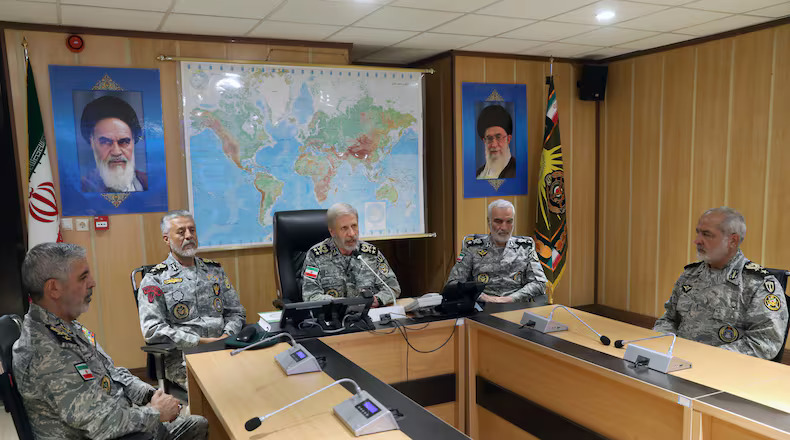Iran’s Qatar Attack Was Strategic Deception, GCC Bases May Be Next: Gulf Analyst Aimen Dean
Dubai — Aimen Dean, a former Al-Qaeda member turned MI6 spy and now a respected geopolitical analyst, believes the missile barrage on Qatar was a strategic deception—a calculated opening move in a broader Iranian campaign targeting U.S. interests across the GCC and Israel.
“This is purely my own analysis,” Dean tweeted late Monday, “but I really believe that the initial Iranian strike on Qatar tonight was just a deception. I have a strong feeling the next wave may be aimed at US interests in Bahrain, Kuwait, the UAE, and Saudi Arabia.”
Dean, who co-hosts the acclaimed Conflicted podcast and is the author of the bestselling memoir Nine Lives, says the tactic reflects Tehran’s attempt to mirror Western psychological warfare. He points to the pattern of mixed signals used historically by both the United States and Israel — “we might attack, we might not,” “diplomacy is still on the table” — as a playbook Iran may now be mimicking.
“I suspect Iran is now playing that same game of misdirection,” he said. “The attack on Qatar was just the opening decoy for something larger still to come.”
The remarks come after The New York Times confirmed that Iran had given advance notice to Qatari officials before the strike — a move aimed at minimizing casualties while making a show of force. That, Dean argues, proves the action was deliberately restrained, especially considering the scale of the provocation — the destruction of Iran’s $1 trillion, two-decade-long nuclear program.
“It was too small a retaliation,” Dean argued. “I believe the IRGC might soon deploy Soumar and Quds-1 cruise missiles against GCC bases, Israel, and U.S. Naval assets.”
The Soumar, derived from Russian technology, and the Quds-1, widely used by Houthi militants in Yemen, are capable of striking deep inside U.S. military installations in the region and even commercial infrastructure, should escalation occur.
Dean clarifies that his warning is not based on classified intelligence, but on strategic pattern recognition and years of experience watching Iran’s asymmetric warfare doctrine evolve.
“To be clear, this isn’t based on any specific intelligence — it’s just my personal speculation,” he noted.
Still, his analysis is consistent with growing concerns among Gulf and Western intelligence services that Tehran’s retaliation may be staggered, aiming to test U.S. red lines without provoking immediate war — all while maintaining plausible deniability and a psychological upper hand.
With 10,000 American troops stationed in Qatar, and major U.S. bases in Kuwait, Bahrain, the UAE, and Saudi Arabia, any Iranian miscalculation could ignite a regional conflict with catastrophic consequences.
Dean’s comments have since gained wide traction across diplomatic and intelligence circles, many now bracing for a second wave of Iranian action — one that could determine whether the region steps back from the brink, or plunges into full-scale conflict



